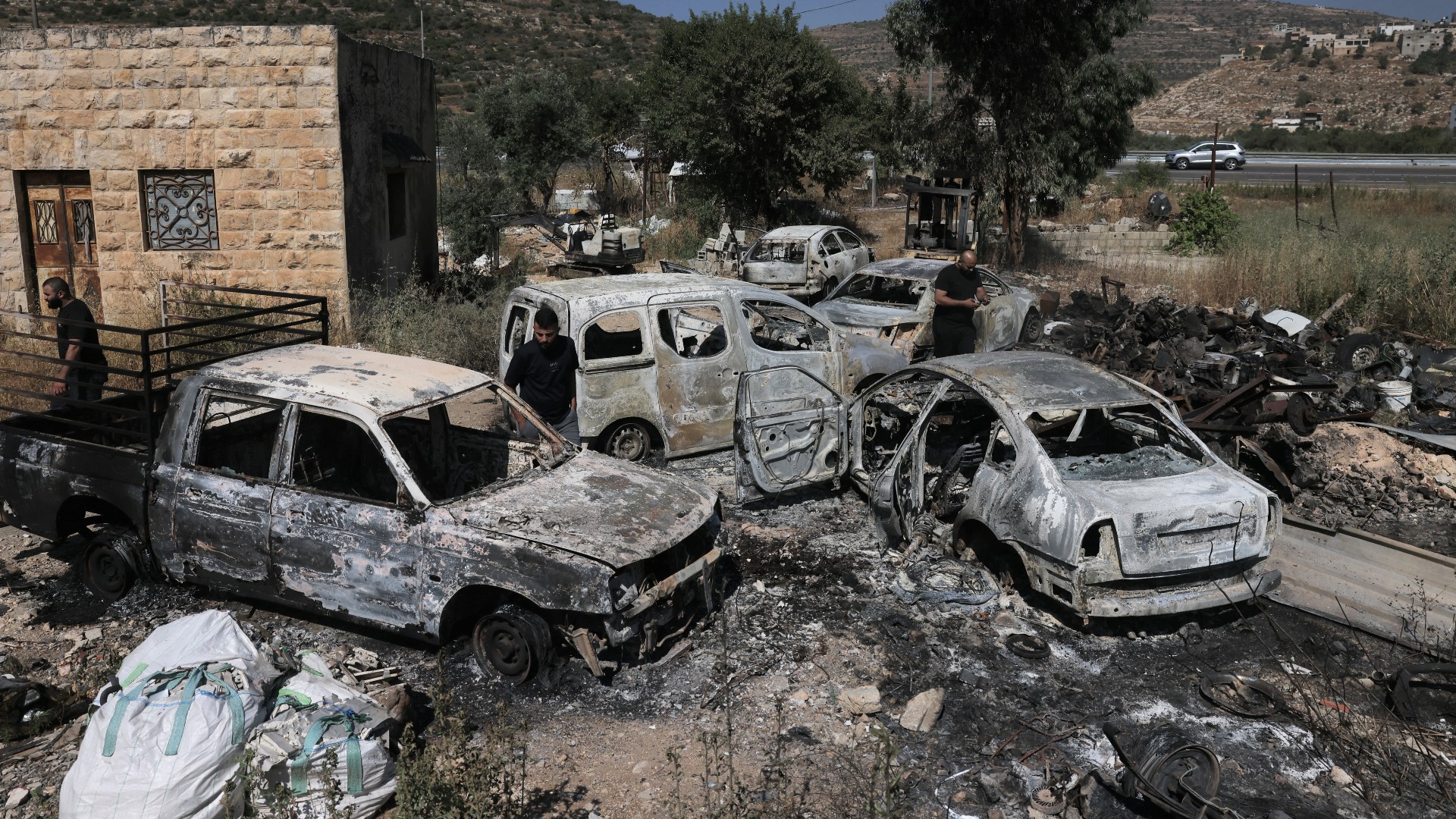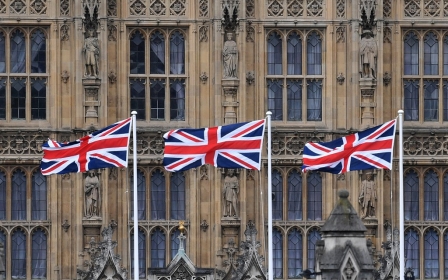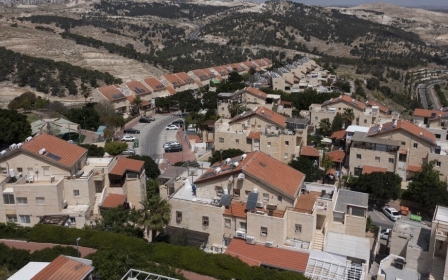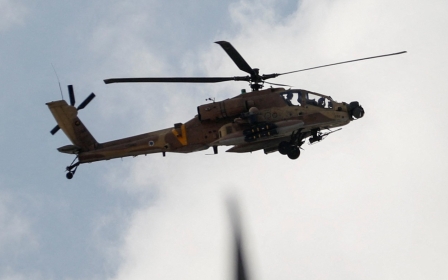Israeli settler rampage sets Palestinian towns on fire
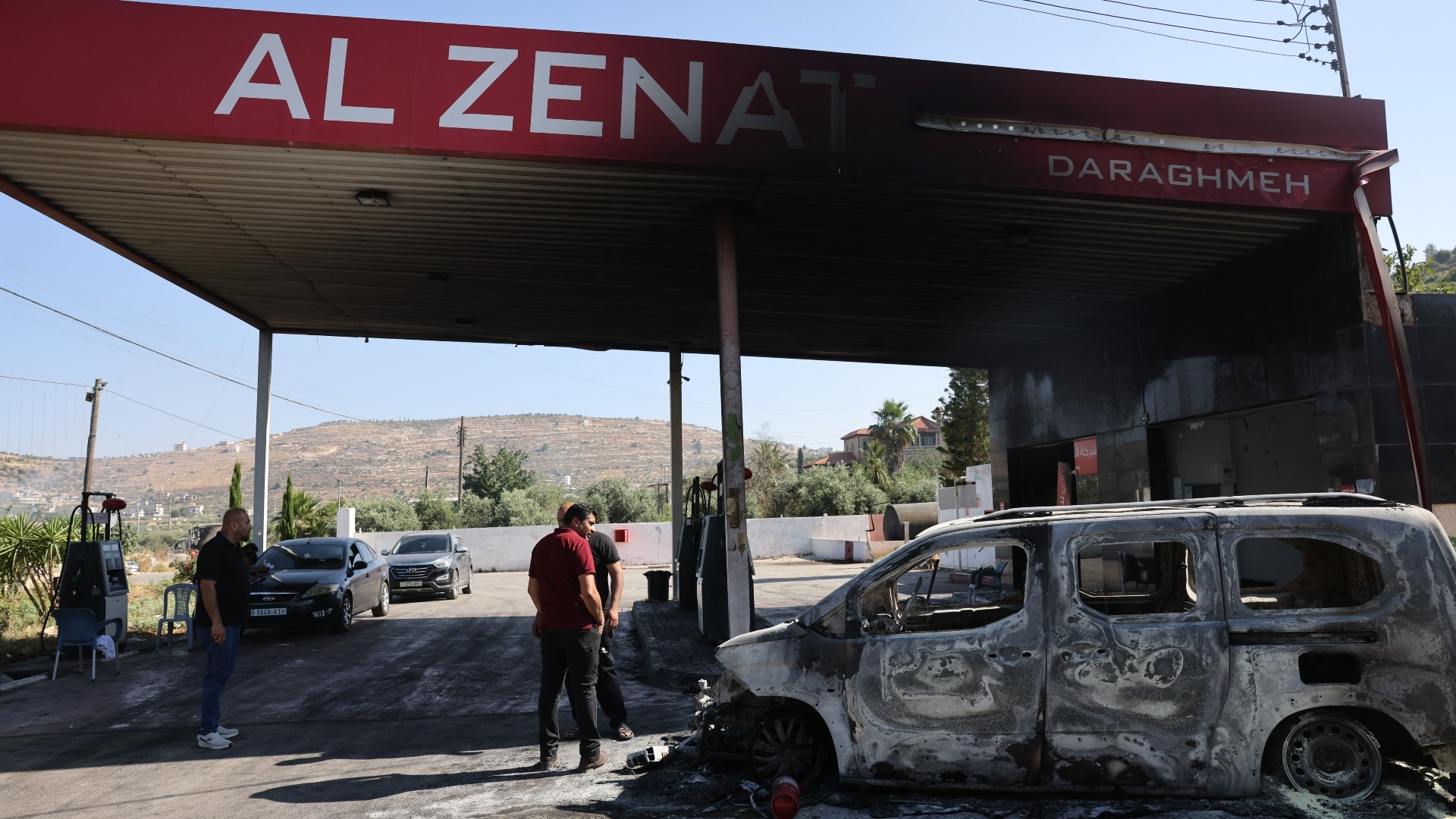
Israeli settlers rampaged through several Palestinian towns in the West Bank on Tuesday night torching cars, setting farmlands on fire and vandalising homes, in scenes reminiscent of a pogrom earlier this year in the village of Huwwara.
On Wednesday, settlers attacked the town of Turmusaya, south of Huwwara, setting vehicles, homes and farmland on fire.
Settlers descended on Luban a-Sharqiya, Huwwara, Beit Furik, Burin and other towns south of Nablus late Tuesday, blocking roads, throwing rocks at passing traffic and terrorising Palestinian communities.
At least 34 Palestinians were wounded and at least 140 vehicles set ablaze, including an ambulance according to Palestinian officials.
Palestinian media outlet Wafa reported cases of Palestinians being robbed by settlers and said a 12-year-old boy was beaten.
New MEE newsletter: Jerusalem Dispatch
Sign up to get the latest insights and analysis on Israel-Palestine, alongside Turkey Unpacked and other MEE newsletters
Huwwara resident Ziyad Ghalib had his house burnt down by settlers during the previous pogrom in February. Back then, he and his family were at home when the Israelis set it on fire, nearly dying from smoke inhalation before a narrow escape.
He told MEE that Tuesday’s assault was the fourth time they had been attacked.
“Nobody has come to check up on us, there has just been some media coverage but other than that, nothing,” he said.
“Nobody has given us any priority or importance, our lives feel worthless. The reality is that no one cares about us, we are not exaggerating.”
Ghalib and his family are now staying at another house in Huwwara, which luckily was not near the settler attacks this time. A relative’s car was torched, however.
He said he doesn’t feel safe in Huwwara anymore.
“My nine-year-old daughter is terrified. We don’t know what to do, we just rely on God,” he said.
“You can be walking around normally and a settler will harass you or drive up to you in their car. It’s a very difficult life.”
Tuesday's settler rampage occurred hours after four Israeli settlers were killed in a shooting near the illegal Israeli settlement of Eli in the central West Bank.
Two gunmen were identified by Palestinian media as Muhannad Faleh Shehadeh and Khaled Mustafa Sabah, both of whom are from the village of Orif, south of Nablus.
Shehadeh was shot dead at the scene. Sabah was shot dead in nearby Toubas, Israel's Shin Bet domestic security agency said.
Israeli forces were brought to some of the areas in a bid to quell the settler violence. Haaretz reported that settlers also attacked some Israeli soldiers, forcing them to fire warning shots in the air.
Israeli police announced that they would deploy more officers on the main roads in the West Bank with an emphasis on “sensitive areas”.
The attack on Israeli settlers came after Israeli forces killed at least seven Palestinians, including three teenagers, following a raid in the West Bank city of Jenin on Monday.
In Huwwara on Tuesday, a mob of settlers torched cars and damaged Palestinian property. Some also opened fire on Palestinians, according to Wafa.
In February, Huwwara and surrounding areas, became the scene of a terrifying rampage by Israeli settlers, which killed one Palestinian and wounded nearly 400 others.
Israel’s far-right finance minister, Bezalel Smotrich, at the time called on the Israeli army to "hit Palestinian cities, with tanks and helicopters, mercilessly, in a way that would convey that the owner of the house has gone mad".
Following Monday's raid on Jenin, Smotrich tweeted: “The time has come to replace the tweezer operations with a wide-ranging campaign to eradicate the nests of terror”.
Israeli forces and settlers have killed at least 163 Palestinians this year, including 27 children.
A total of 129 fatalities have been recorded in the West Bank and East Jerusalem and a further 34 in the Gaza Strip.
Palestinians have killed at least 24 Israelis in the same period.
This article is available in French on Middle East Eye French edition.
Middle East Eye delivers independent and unrivalled coverage and analysis of the Middle East, North Africa and beyond. To learn more about republishing this content and the associated fees, please fill out this form. More about MEE can be found here.


